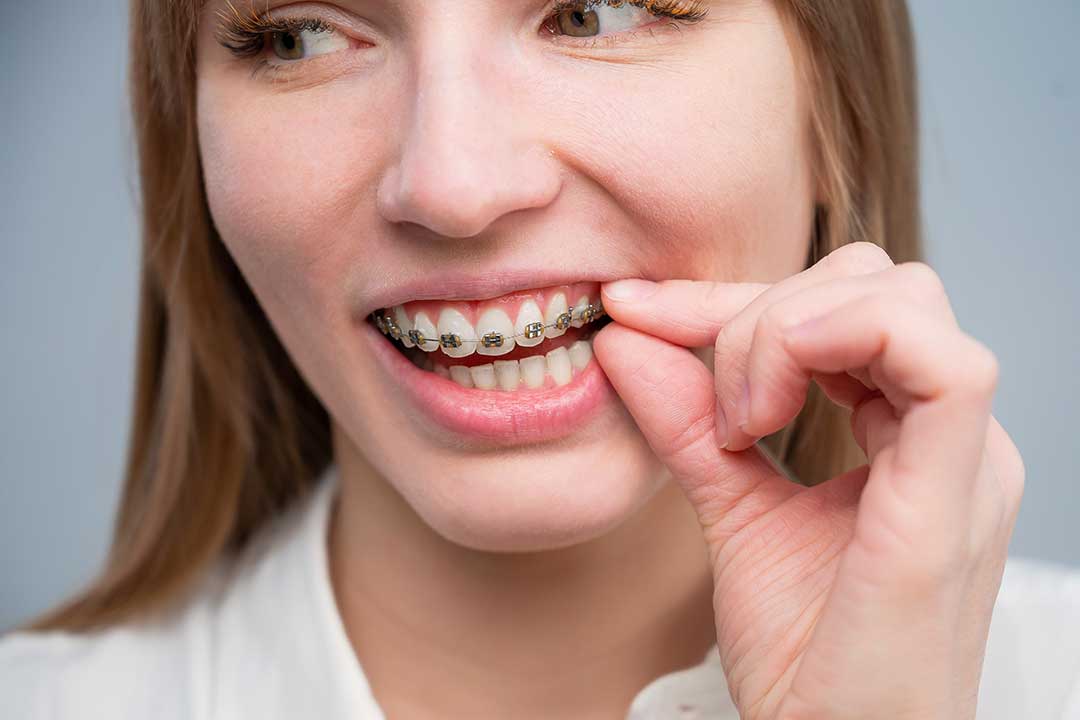Breast cancer is a complex disease that affects millions of women worldwide. It is the most common cancer among women in the UAE with the majority of cases characteristically occurring in women younger than 50 years.
While most of the focus is understandably on treatment and recovery, it’s important to consider the broader impacts of the disease, including how breast cancer can affect oral health. For patients undergoing breast cancer treatment, oral health often takes a backseat, yet the side effects of chemotherapy, radiation, and other cancer therapies can significantly affect the mouth, teeth, and gums. Understanding these potential risks and taking preventive measures can improve a patient’s quality of life and reduce complications during and after cancer treatment.
Oral Health Complications During Breast Cancer Treatment
Dry mouth (xerostomia)
One of the most common oral side effects of cancer treatments like chemotherapy and radiation is dry mouth. Chemotherapy can reduce saliva production, leading to dry mouth, or xerostomia. Saliva plays an essential role in maintaining oral health by washing away food particles and neutralizing harmful acids in the mouth. When saliva levels drop, patients become more vulnerable to tooth decay, gum disease, and oral infections.
Mucositis
Chemotherapy and radiation can also damage the soft tissues in the mouth, leading to a painful condition called oral mucositis. Mucositis causes inflammation and ulceration of the mucous membranes, resulting in soreness, difficulty eating, and an increased risk of infections. It can also make basic oral hygiene tasks like brushing and flossing more challenging.
Increased risk of oral infections
Breast cancer treatments can weaken the immune system, increasing the risk of oral infections. Cancer therapies often lower white blood cell counts, reducing the body’s ability to fight infections. This makes conditions like oral thrush (a fungal infection) and periodontal (gum) disease more common in breast cancer patients. Maintaining good oral hygiene and regular dental checkups are crucial to reduce the risk of infections.
Osteonecrosis of the jaw
Patients undergoing specific treatments, such as bisphosphonates or anti-resorptive therapy for bone metastasis, may be at risk for a rare condition known as osteonecrosis of the jaw (ONJ). According to the American Academy of Oral and Maxillofacial Surgeons (AAOMS), ONJ occurs when the jawbone begins to die due to a lack of blood supply. This condition can be triggered by certain cancer medications and requires careful monitoring by both oncologists and dental professionals.
How to Protect Your Oral Health During Breast Cancer Treatment
While breast cancer treatments can significantly affect oral health, taking proactive steps can help manage these complications:
Consult with your dentist before treatment begins.
It is recommended that breast cancer patients see a dentist for a thorough examination before beginning treatment. It is important to address any existing dental issues, such as cavities or gum disease, to minimize the risk of complications during cancer therapy.
Maintain a strict oral hygiene routine.
Good oral hygiene is crucial during cancer treatment. Brushing twice a day with fluoride toothpaste, flossing daily, and using alcohol-free mouth rinses can help prevent infections and tooth decay. For those suffering from dry mouth, using a saliva substitute or chewing sugar-free gum may help stimulate saliva production.
Stay hydrated.
Drinking plenty of water throughout the day helps combat dry mouth and keeps the oral tissues hydrated. Avoiding caffeine and alcohol, which can further dehydrate the mouth, is also recommended.
Manage mucositis and pain.
For patients experiencing mucositis, using a soft-bristled toothbrush and avoiding spicy or acidic foods can help reduce discomfort. Your dentist may also recommend mouth rinses or topical treatments to alleviate symptoms.
Maintain regular dental checkups.
During and after cancer treatment, regular dental visits are essential for monitoring oral health and managing side effects. Dentists can identify early signs of infection, decay, or other oral complications and provide appropriate treatments to prevent further issues.
If you or a loved one are undergoing treatment for breast cancer, contact us today to schedule a consultation and learn how we can support your oral health needs during your cancer journey.


